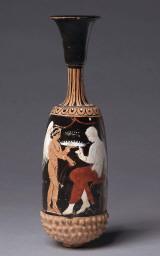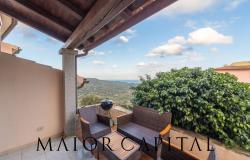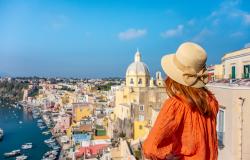Culture Minister Sandro Bondi on Thursday presented 14 antiquities returned to Italy by the Cleveland Museum of Art after the government proved that the works had been looted or stolen.
The returns include a bronze statuette of an archer dating from 900-700 BC Sardinia, silver bracelets stolen from the grave of an Etruscan woman, an Attic drinking vessel in the shape of a mule's head and a four-foot-high wine vessel from Puglia dating to the 4th century BC that shows Trojan prince Hector leaving for battle.
The Cleveland Museum has also returned a Gothic copper processional cross made near Siena in the 14th century and stolen several decades ago from a Tuscan church - the first non-classical work to be given back to Italy.
''The 14 pieces will now return to their places of origin and the Italian government's work at the head of the fight against illegal art trafficking will continue,'' said Bondi.
''This is a new success for cultural diplomacy and for the work of the magistrates and police,'' he added.
''Italy can't be considered a military superpower, and maybe not even a political superpower, but it's certainly a cultural one''.
The Italian authorities will continue negotiations with Cleveland for the return of two other works: the so-called Cleveland Apollo and a small bronze winged victory chariot.
Among upcoming returns from other foreign institutions are two paintings from the Abruzzo capital L'Aquila showing the life of Roman Christian martyr St Eustace which a Michigan museum has spontaneously offered to give back.
Negotiations are meanwhile continuing with other museums including Denmark's Ny Carlsberg Glyptotek Museum.
Italy has already retrieved antiquities from institutions including the John Paul Getty Museum, the Metropolitan Museum of Art in New York, the Boston Museum of Fine Arts and Princeton University.
Bondi meanwhile announced plans to return hundreds of works kept in storage by Italian museums to their places of origin.
''They could be returned, at least temporarily, to their towns and cities of provenance,'' he said.
''My idea is to examine the possibility with the directors of Italy's large museums. I think it would be a positive initiative''.










